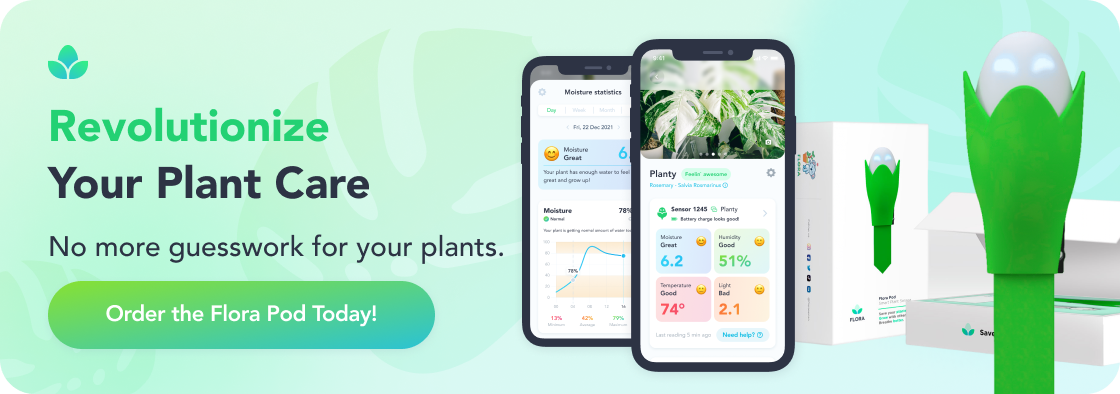Indoor Types of Dracaena Plants for Every Home

The Dracaena genus offers plant enthusiasts a diverse selection of beautiful, low-maintenance houseplants that thrive indoors. With various leaf shapes, sizes, and colors, Dracaena types bring vibrant greenery to any room while requiring minimal effort to care for. These plants are known for their adaptability, surviving in both bright and low-light environments, which makes them perfect companions for every plant parent, whether experienced or new. Let's explore which indoor types of Dracaena plants can complement your home and how to care for them to keep them thriving.
What Makes Dracaena Plants Perfect for Indoors?
Dracaena plants stand out as excellent houseplants due to their ability to tolerate a range of light conditions, including low to moderate light. Their natural resilience means they can thrive even with occasional neglect, making them ideal for busy households or first-time plant parents. In addition, Dracaenas purify the air by filtering toxins like formaldehyde and benzene, contributing to a healthier indoor environment.
These plants are also pet-friendly options if grown out of reach. With their variety of heights, colors, and shapes, Dracaenas can enhance any interior aesthetic, bringing a tropical touch to homes and offices alike.
The Most Popular Indoor Types of Dracaena Plants
Dracaena plants offer a remarkable selection of varieties, each with distinct features and care requirements. These beloved houseplants are known for their ability to thrive in a range of indoor conditions, bringing style and greenery to any room. Let’s explore five of the most popular types of Dracaena, detailing their appearance, care needs, and ideal placement.
Dracaena Fragrans (‘Massangeana’ or Corn Plant)

The Corn Plant, one of the most recognized Dracaena varieties, stands out with its long, arching leaves that feature a central yellow-green stripe. These leaves emerge from a thick, woody stem that mimics a corn stalk, giving the plant its common name. It can grow up to 6 feet indoors and adapts well to most lighting conditions, making it an excellent choice for homes and offices.
Light Requirements: Thrives in bright, indirect light but tolerates low light, although slower growth is expected.
Watering: Prefers evenly moist soil; however, avoid waterlogging. Allow the top inch of soil to dry out before watering again.
Humidity: Moderate humidity keeps the leaves vibrant. Mist occasionally if the air becomes too dry.
Best Placement: Corn Plants do well in living rooms or offices near east-facing windows, where they receive soft morning sunlight.
This Dracaena not only adds a touch of elegance with its tropical appearance but also improves indoor air quality by filtering toxins like benzene and formaldehyde.
Dracaena Marginata (Dragon Tree)

The Dragon Tree is known for its narrow, spiky leaves that extend from slender canes, forming a striking architectural shape. Its multiple stems, often braided or twisted, contribute to its dramatic appeal, making it ideal for modern interiors. This plant is particularly popular for its ability to thrive in low light and its resilience to occasional neglect.
Light Requirements: Performs best in bright, indirect light but can handle lower light levels.
Watering: Allow the soil to dry out between waterings to prevent root rot. The plant tolerates occasional missed watering sessions.
Growth Rate: Slow-growing, reaching about 5-7 feet indoors over several years.
Best Placement: Perfect for corners of well-lit living rooms or entryways, where its height and striking leaves make a statement.
Dragon Trees are also pet-safe when placed out of reach and have an impressive ability to adapt to indoor environments, making them a favorite for plant parents seeking low-maintenance greenery.
Dracaena Reflexa (Song of India)

Song of India, known for its vibrant yellow-green striped leaves, adds a dynamic touch to any room with its spiraling foliage. The plant’s upright growth habit and bushy appearance make it a perfect fit for kitchens, bathrooms, or other areas with medium to high humidity levels.
Light Requirements: Needs bright, indirect light to maintain the intensity of its colorful leaves. If placed in lower light, the vibrant stripes may fade.
Watering: Requires regular watering to keep the soil lightly moist, but avoid overwatering.
Humidity: Enjoys high humidity; misting regularly will help it thrive.
Best Placement: Ideal for kitchens or bathrooms, where the humidity helps prevent the leaves from drying out.
With its lush, tropical feel, Song of India offers both visual interest and environmental benefits, as it’s known to help purify indoor air.
Dracaena Sanderiana (Lucky Bamboo)

Although not a true bamboo, Lucky Bamboo is celebrated for its symbolic association with good fortune and positive energy. This compact Dracaena is incredibly versatile, growing well in both water and soil, making it a popular choice for desks, shelves, and small spaces.
Light Requirements: Thrives in low to moderate light, making it ideal for offices or shaded areas of the home.
Watering: If grown in water, ensure the water level covers the roots and change it weekly. In soil, allow the top layer to dry out before watering.
Growth Habit: Compact and slow-growing, usually reaching heights of 1-3 feet indoors.
Best Placement: Perfect for desks or tabletops, where its small size and elegant form add a touch of greenery.
Lucky Bamboo is often gifted for occasions like housewarmings, as it symbolizes prosperity, longevity, and happiness.
Dracaena Deremensis (‘Janet Craig’, ‘Lemon Lime’)

Dracaena Deremensis includes two striking varieties: the deep green ‘Janet Craig’ and the striped ‘Lemon Lime’. Both are prized for their elegant foliage and ease of care, making them perfect for low-maintenance plant parents.
Light Requirements: Both varieties tolerate low light, but bright, indirect light encourages more vibrant foliage.
Watering: Water when the top inch of soil feels dry. Overwatering can lead to yellowing leaves, so good drainage is essential.
Growth Rate: Moderate, typically reaching 3-6 feet indoors.
Best Placement: These varieties thrive in offices or dim corners, where they add lush greenery without demanding much attention.
‘Janet Craig’ brings sophistication with its deep green leaves, while ‘Lemon Lime’ offers a pop of color with its light green and yellow stripes. Both types are highly adaptable and excellent for improving indoor air quality.
Caring for Your Indoor Dracaena Plant Types
Proper care ensures that Dracaena plants flourish and maintain their vibrant appearance. Follow these care tips:
Light: Bright, indirect light is ideal, but most Dracaenas tolerate low light.
Watering: Water when the top inch of soil is dry. Overwatering can cause root rot, so ensure the soil drains well.
Humidity: Maintain moderate humidity. Mist plants during winter to prevent dryness.
Fertilization: Use a diluted liquid fertilizer monthly during the growing season (spring to summer).
Best Placement for Dracaena Plants Indoors
Choosing the right spot enhances the growth and health of your Dracaena plants. Below is a quick placement guide:
Type of Dracaena | Ideal Placement |
Corn Plant | Near east-facing windows |
Dragon Tree | Bright living rooms or entryways |
Song of India | Kitchens or bathrooms with indirect light |
Lucky Bamboo | Tabletops, offices, or desktops |
Janet Craig/Lemon Lime | Shady corners or office desks |
Identifying and Solving Common Dracaena Problems
Dracaenas communicate their needs through their leaves. Here are some common issues to watch out for:
Brown Tips: Often caused by low humidity or overwatering. Increase humidity or reduce watering frequency.
Yellow Leaves: A sign of overwatering or fluoride buildup in tap water. Use distilled water if needed.
Pests: Spider mites or mealybugs can infest Dracaenas. Wipe leaves with a damp cloth and use insecticidal soap if necessary.
Propagating Dracaena Plants at Home
Propagation can extend your plant collection. Dracaenas propagate well from stem cuttings. Here’s how to propagate successfully:
Cut an 8-inch section from the top of the plant.
Place the cutting in water until roots develop, changing the water weekly.
Once roots are 1-2 inches long, plant the cutting in soil.
How to Repot Dracaena Plants Without Stressing Them

Repot your Dracaena every two years or when roots begin to outgrow the container. Follow these steps:
Choose a pot 1-2 inches larger in diameter.
Fill the new pot with well-draining soil.
Gently remove the plant from its current pot and place it in the new one.
Water thoroughly and allow excess water to drain.
Indoor Styling Tips with Dracaena Plant Types
Dracaenas are versatile and complement various decor styles. Here are a few ideas:
Modern Minimalist: Use a Dragon Tree in a sleek pot to enhance clean lines.
Boho-Chic: Combine Song of India with hanging plants for a layered look.
Classic Office: Place a Janet Craig Dracaena in a corner for a lush, green touch.
Why Dracaena Plants Belong in Every Home
Dracaena plants are not just decorative; they contribute to a healthier living space by filtering toxins and boosting humidity levels. Their variety ensures there’s a Dracaena suitable for every home, from the smallest apartment to the largest house. Whether you’re looking for an air-purifying plant or a statement piece, the versatility of Dracaena plants makes them a perfect addition to any indoor space.
At Flora, we believe that every plant deserves the best care, and every plant parent deserves access to knowledge and community support. Dracaena plants are just one example of how plants can enrich our lives, adding beauty and wellness to our homes.
Common Questions
Can Dracaena plants survive in low light conditions?
Yes, many Dracaena varieties, including Dracaena Fragrans and Dracaena Janet Craig, tolerate low light conditions. However, their growth may slow, and foliage colors might become less vibrant. Placing these plants in bright, indirect light will encourage healthier growth and more vibrant leaves.
How often should I water my Dracaena plants?
The watering frequency depends on the environment and the specific Dracaena type, but generally, the top inch of soil should be allowed to dry out between waterings. Overwatering can lead to root rot, so it’s essential to ensure proper drainage. During winter, water less frequently as growth slows.
Are Dracaena plants pet-friendly?
While Dracaenas are visually appealing and easy to care for, they are mildly toxic to pets. Ingestion may cause vomiting and drooling in cats and dogs. It’s best to keep them out of reach of curious pets or opt for safer plant alternatives if you have animals at home.
Can Dracaena plants be propagated easily?
Yes, Dracaenas are easy to propagate from stem cuttings. Simply cut a healthy section of the stem and place it in water until roots form. Once roots are a few inches long, transfer the cutting into soil for continued growth.
What are the signs of overwatering Dracaena plants?
Signs of overwatering include yellowing leaves, soft stems, and root rot. If you notice these symptoms, allow the soil to dry out completely before the next watering, and ensure that your plant's pot has adequate drainage.
Fern's Leafy Learnings
Adaptability: Dracaena plants thrive in a variety of lighting conditions, making them ideal for both low-light spaces and well-lit rooms.
Air Purification: These plants filter toxins like formaldehyde and benzene, contributing to healthier indoor environments.
Low Maintenance: Dracaenas are easy to care for, requiring minimal watering and thriving with occasional misting for humidity.
Diverse Styling Options: With their wide range of leaf shapes and colors, Dracaenas suit any decor style, from minimalist to tropical.
Propagation Made Simple: Dracaenas are easy to propagate from cuttings, allowing plant lovers to grow new plants effortlessly.
Deepen Your Roots with Flora
At Flora, we not only bring you a vibrant selection of locally sourced, rare, and delightful plants, but we also serve as your continuous guide in your plant parenting voyage, ensuring every leaf in your sanctuary thrives. With our Flora Pod™ technology and a nurturing community of over 250,000 plant lovers, we cultivate a space where every plant parent - novice or expert - can blossom.
We propagate with a commitment to sustainability, connection, and ceaseless growth, fostering a community where each member, and their plants, are cherished and nurtured.
Crave a lush, thriving green space? Adopt a plant from Flora today!
Flora Pod™ is featured on Shark Tank!

5 Signs Your Houseplant Needs Repotting Now
Mar 02, 2026
6 Anthurium Benefits You Didn't Know About
Mar 02, 2026

How to Prune Your Houseplants Before Spring Growth Season
Mar 02, 2026

10 Best Houseplants for Spring Repotting Success
Mar 02, 2026

Can ZZ Plants Survive in Low Light Conditions?
Mar 02, 2026

5 Critical Pre-Spring Pruning Tips for Houseplants
Mar 02, 2026

Can Succulents Survive Winter Outdoors in Your Climate Zone?
Mar 02, 2026

Which Houseplants Are Toxic to Cats and Should You Avoid Them?
Mar 02, 2026




